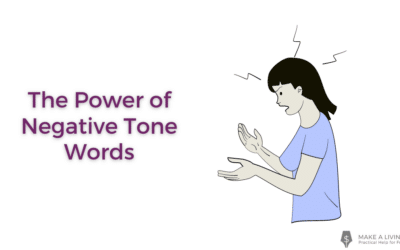If you had a playbook for the most important writing rules and freelance laws to follow, what could you accomplish?
Sit and think about that for a second.
Wouldn’t it be nice to have someone show you the ropes? You know, the writing rules and freelance laws to help you…
- Avoid wasting time
- Find great clients
- Prioritize
- Stay motivated
- Make money writing
When you’re starting out, it’s easy to do the zig-zag, up-and-down dance of trying to figure out the best writing rules to follow.
No, not English-teacher grammar rules, but the universal laws of freelancing…
- Do this. Don’t do that.
- Here’s what you should focus on to be a successful freelance writer.
That kind of advice can only come from someone who’s been there…someone like Stefan Palios.
He got laid off from a tech start-up in 2019. At the time, freelancing was just a side hustle. But it proved to be the tipping point to discover the writing rules and laws of freelancing to:
- Go freelance full-time
- Find great clients
- Write a book
- Launch a podcast
- Publish a newsletter that generates inbound leads, and much more
Want to know what to focus on to grow your freelance career? Here’s what Stefan learned along the way…
Meet freelance writer Stefan Palios

Stefan Palios
Stefan Palios is a freelance tech writer and entrepreneur based in Toronto, Canada.
He’s the author of The 50 Laws of Freelancing: The Insider Secrets Every Freelancer Must Know.
He’s also the founder and publisher of RemotelyInclined.com, a digital newsletter about trends in remote working.
We caught up with Stefan in a recent Freelance Writers Den podcast. Want to learn more about the writing rules and freelance laws for success? Here’s a few things he learned during his first year of full-time freelancing.
1. Every freelancer needs a one-liner marketing statement
Stefan’s one-liner when he first got started:
“I write content for start-ups.”
Stefan: I didn’t really know how to market myself when I first started, so that’s just how I described myself.
What I learned is that you need to make it easy for other people to talk about you, the way you want to be talked about. My simple one-liner actually helped kick-start a referral engine that’s been going since I started.
Tip: Create a one-liner or elevator statement and explain what you do in 1-2 short sentences.
2. Asking for referrals is better than cold pitching prospects
But you have to do it the right way.
Stefan: I haven’t had to pitch myself for business in quite some time. I don’t think I’ve sent a cold email in over a year and a half.
One of the reasons…asking for referrals the right way.
- The wrong way: “Hey, can you give me a referral?” People will say, “Yeah, sure. Happy to. You’re a friend. Whatever. I’ll keep an eye out.” And then nothing happens.
- The right way: “If you know anyone who needs content help, I’d be happy to help.” This way, the people you’re talking to get to become the helper. They have a contact who needs help with content, and they get to say, “I think I have a solution for you. My friend, does this.” The connection is additive, it feels good for everybody. That’s been a huge driver of referrals for me.
Tip: Instead of asking for referrals, use your one-liner to let people know you’re a freelance writer or content creator who can help.
3. Experimenting is a superpower freelancers should cultivate
What would you do if you wanted more inbound leads for freelance work? Or what could you do to expand the type of projects you can bill clients for?
Pitching prospects directly is important, especially when you’re starting out, is important.
And you could take another course to improve your skills. But there’s something a lot better than building your course collection.
Experimenting…or taking action.
Stefan’s experiments as a freelancer include things like…
- Leveraging social media (Facebook, LinkedIn, Twitter)
- Answering questions on Quora
- Launching a niche newsletter with Substack
- Engaging with prospects on Reddit
- Joining online communities where potential clients hang out
- Launching a niche podcast, and learning to edit audio
- Writing a book
- Creating a Shopify store and selling products. (He actually made $150 the first day.)
- Promoting other people/businesses in your niche
So far he’s conducted 19 experiments to grow his freelance business using 20 different platforms. Many have helped him land more freelance work and new clients. And he’s still experimenting.
Tip: Identify a marketing strategy you haven’t tried to generate leads. Turn it into an experiment, and track your progress.
4. A daily priority list will help you get more work done
Ever wake up in the morning without a plan? Or maybe you’ve got a to-do list that’s a mile long.
Both have a way of turning into a time suck where you don’t get a lot done.
Here’s another daily writing rule Stefan follows:
Every day send yourself an email or write a list with your key priorities. Break it up into categories like
- Administrative tasks to run your freelance business (website updates, billing, etc.)
- Marketing (pitching, networking on social media, etc.)
- Client work and deadlines
- Professional development (courses, webinars, training, etc.)
- Personal tasks (grocery shopping, household chores, exercise, entertainment, etc.)
Stefan: I’m motivated by crossing things off a list. This gives me energy to get things done. And it’s helped me speed up my work with bite-sized tasks I can get through quickly.
Tip: Plan your day, and limit yourself to a few priority tasks. It’s a smart way to consistently grow your freelance business.
5. Pay attention to what prospects want to build your portfolio
Stefan puts it this way:
“Always have something to show.”
Ever have a call with a prospect like this:
- Prospect: “Oh, by the way, I want this kind of content. Can you just send me an example?”
- You: “I don’t have anything like that.”
It’s not always a deal breaker if you don’t have an example of a specific project (fill in the blank…blog post, article, case study, white paper, e-book, newsletter, landing pages, etc.). But sometimes it’s the difference between landing a new client and getting passed over.
Tip: Pay attention to what prospects are asking for, and take steps to fill the holes in your portfolio. For example:
- Upsell an existing client a new project
- Offer to do a small probono project to get a sample or break into a new niche
- Create your own samples
6. Excitement does not equal sales
Ever get on a call with a prospect and hear something like this?
- We’re so excited to work with you.
- We want to hit the ground running.
- Can’t wait to get started.
You get off the call, totally stoked, ready to submit a proposal and get to work.
And then the deal completely fizzles out, or they ghost you.
Stefan: When you get that level of excitement that doesn’t seem grounded in anything, chances are that person either doesn’t actually have the budget to pay you. Maybe they just want some ideas, but don’t actually want to work with you. Or they don’t have the decision-making power to set the scope of the work, and actually hire you.
Tip: If you find yourself in this situation, you’ve got two choices:
- Guide that prospect to a business conversation by asking a few more questions. What are you trying to accomplish? What will success look like? How will you measure it? If they’re ready to talk business, you’ve got a solid prospect you can probably book some work with. If they’re not, see choice #2.
- Turn and run. Politely end the conversation with something like: “This is the work I do. If this fist, let’s stay in touch.” That’s it. Don’t waste your effort. If you don’t, you’ll almost always regret it.
7. You must put yourself out there to get freelance work
Of course you want prospects with healthy budgets and interesting projects lining up at your door.
But that doesn’t happen if you’re just sitting behind your computer wishing it would happen.
Stefan: You have to be willing to put yourself out there. Clients respect that entrepreneurial effort because it shows you understand what it takes to produce content. They feel good about partnering with you. And you become more of an advisor to your clients, rather than just a writer.
Tip: Put yourself out there…every day. If you want to be successful, marketing and networking to generate leads and book more work should be a regular part of your freelance business.
The most important writing rule to remember: You can do this
What’s the most important writing rule to remember for freelance success?
Stefan: That you can just do it. It’s hard work. I don’t mean to trivialize it. But it’s doable.
If you want to be a successful freelance writer, you don’t have to do the zig-zag, up-and-down dance, and take forever to make progress. Instead, follow these proven writing rules and laws to to move up and earn more…faster than trying to figure it out on your own.
What freelance writing rules and laws do you need help with? Let’s discuss in the comments.
Evan Jensen is the blog editor for Make a Living Writing. When he’s not on a writing deadline or catching up on emails, he’s training to run another 100-mile ultra-marathon.












